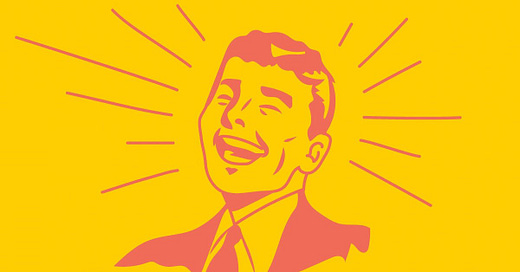How Trauma Made Me Funny
"Trauma made me funny."
It sounds dark, doesn’t it? But if you’ve lived through trauma, you might just get it.
Many of us who have faced adversity often find ourselves using humour as a tool—not just to survive but to connect, to cope, and sometimes, to thrive. It’s a common joke among trauma survivors: the more we’ve been through, the funnier we get. But there’s a lot of truth in it. Humour is not just a distraction; it’s a lifeline.
Humour in Dark Times
Laughter provides relief in ways that are both psychological and physiological. Scientifically speaking (excuse me while I momentarily act like I know what I’m talking about), humour is a form of critical thinking—it allows us to see things from a new perspective. Laughter releases endorphins, our brain’s natural “feel-good” chemicals, which help reduce pain and boost our mood.
When life throws relentless challenges our way, humour becomes a form of resistance. It gives us back control. It allows us to frame our own narrative instead of being consumed by it.
Finding Light-heartedness
For me, humour has been a major coping mechanism. Not in a way that denies or avoids my reality, but in a way that makes it easier to live with. I don’t spend my days cracking jokes to avoid dealing with life, but I do lean into humour when things feel unbearably heavy.
Experiencing trauma shifts your perspective. You start to notice the absurdity in life, and sometimes, laughing at it is the only thing that makes sense. In many ways, trauma has deepened my empathy—it’s given me a greater ability to connect with others in their struggles. And in those moments, when words fail, humour can be the bridge that brings comfort and understanding.
Diffusing Heavy Conversations
Navigating social situations as a trauma survivor can be tricky. People ask innocent questions, unaware of the emotional landmine they’ve just stepped on. I’ve found that humour is the best way to ease those moments—for both myself and the person asking.
Picture this: I’m on a date, and they ask about my family.
Them: "Do you have any siblings?"
Me: "I do! Unfortunately, she passed away."
Them: "Oh... I’m so sorry."
Them: "And your parents?"
Me: "Ah yes, my dad passed away too."
Them: "Oh… uh…"
Them: "You must have really great friends, then."
Me: "Yes! The best. A few of them have passed away too."
Them: Blank stare.
Me: "BUT—I promise I’m funny!"
It’s heavy, isn’t it? I’m more than my losses, but they’re a part of me. Instead of making someone sit in that weight, I lighten it. Humour helps regulate the nervous system—it signals to others that they don’t have to hold the heaviness alone.
It’s not about dismissing grief or pain, but about making the conversation liveable. No one asks about my family expecting to be blindsided by trauma. If I can soften the moment, I will.
Joy
After experiencing significant struggles, most of us crave relief. Life can feel overwhelmingly dark when we are consumed by pain. Humour cracks open space for light to shine through.
I’ve learned that humour is not just a coping mechanism—it’s an appreciation for life itself. It reminds us that joy exists even in hardship. It connects us with others who understand, and it helps us carry what feels too heavy to bear alone.
Trauma may never leave us, but laughter allows us to breathe again. And sometimes, that’s the most healing thing of all.




